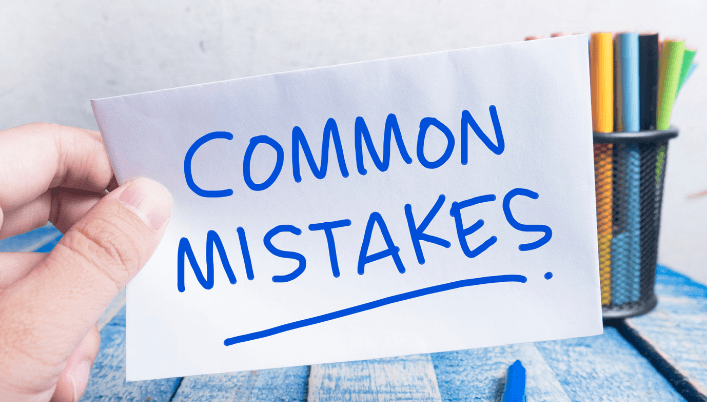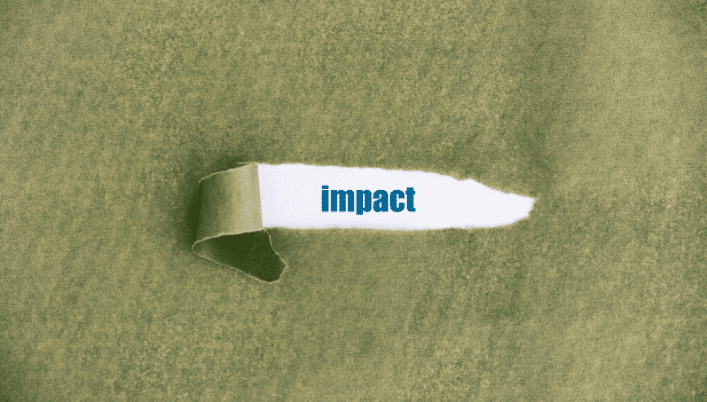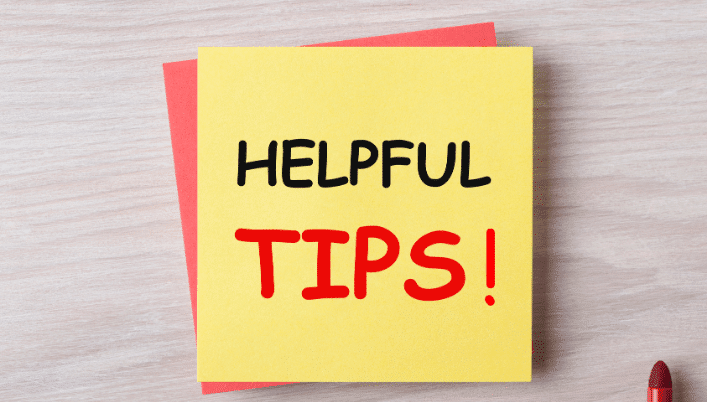What is a Home Lien?

A home lien is a legal claim that is placed on a property by a creditor to secure repayment of a debt.
It is essentially a legal right that allows the
creditor to take possession of the property or force its sale to recover the money owed.
A lien can be placed on your home by various parties, such as lenders, contractors, or even the government.
A home lien refers to a legal claim or encumbrance placed on a real property, such as a house or land.
It can arise due to various reasons, including unpaid debts or legal claims against the property owner.
Lien holders have a financial interest in the property, which can affect the owner’s ability to sell, refinance, or otherwise transfer ownership of the property.
There are different types of liens that can be filed against a property.
For instance, a mechanic’s lien may be filed by contractors or suppliers who haven’t been paid for work or materials provided on the property.
On the other hand, a judgment lien may be filed by a creditor who has obtained a court judgment against the property owner for unpaid debts.
Additionally, government entities, such as the IRS, can also place a lien on a property if taxes are not paid.
When a lien is granted, it is essentially attached to the real property, meaning that it remains with the property regardless of changes in ownership.
It is crucial for buyers to conduct title searches and investigations during the home buying process to ensure there are no existing liens on the property.
If a lien is discovered, it is often the responsibility of the property owner to pay off the lien before the property can be sold or refinanced.
Liens can have serious implications for property owners.
If a lien is not paid, the lien holder has the right to seize the property to satisfy the debt.
Moreover, some liens, such as mortgage liens, take priority over other liens.
This means that if the property is sold or foreclosed upon, the mortgage lien holder takes precedence in receiving payment from the proceeds of the sale.
To avoid complications, it is crucial for property owners to ensure their property is in order and to meet their financial obligations promptly.
This includes paying property taxes, mortgage installments, and other debts associated with the property.
By doing so, homeowners can maintain their property’s value and minimize the risk of having a lien placed on their property.
Definition of a Home Lien
A home lien is a legal claim that gives creditors a right to your property until you pay off your debt.
It is a way for them to ensure that they will be repaid, even if they default on your loan or fail to fulfill your financial obligations.
A lien can be considered a type of security interest.
Types of Home Liens
There are two main types of home liens: voluntary and involuntary liens.
- Voluntary liens are those that you agree to when you take out a loan, such as a mortgage. These liens are created willingly and with your consent.
- Involuntary liens, on the other hand, are created without your agreement or consent. These liens can be imposed by creditors or the government and are typically the result of unpaid debts or legal judgments.
Within these categories, there are different types of liens, including consensual liens, which are created through a contract or agreement, statutory liens, which are imposed by law, and equitable liens, which are created by a court to prevent unjust enrichment.
How Home Liens Work
When a creditor believes they are owed money, they can file a lien against your property to secure their claim.
This means that if you fail to repay the debt, they can initiate legal proceedings to sell your property and recoup their money.
The specific process for filing a lien can vary depending on the jurisdiction and type of lien.
In general, the creditor must follow certain procedures to properly file and enforce the lien on your property.
This can involve providing notice to you, filing documents with the appropriate authorities, and following specific timelines.
It is important to note that having a lien on your property can have serious consequences.
It can affect your ability to sell or refinance your home and may even lead to foreclosure if you are unable to resolve the debt.
http://www.youtube.com/watch?v=LG7-fDIWJ68
In conclusion, a home lien is a legal claim placed on a property to secure repayment of a debt.
There are voluntary and involuntary liens, each with its own specific characteristics and legal requirements.
Understanding how liens work is crucial to protecting your property and financial interests.
Key Takeaways
- Definition of a Home Lien: A home lien is a legal claim securing debt repayment.
- Types of Home Liens: Home liens can be voluntary or involuntary, with distinct characteristics.
- How Home Liens Work: Creditors use liens to recover debt, following specific procedures.
- Common Home Liens in Singapore: Mortgage, government, and private liens are common in Singapore, affecting property rights.
- How to Remove a Lien: Pay off the debt, request a lien release, or file for a discharge if necessary.
- Impact of a Home Lien: Liens can hinder property sales, raise loan interest rates, and lead to foreclosure if ignored.
- Tips for Avoiding Home Liens: Pay bills on time, monitor credit history, and consider purchasing title insurance.
- Prioritize Debt Repayment: Pay off debts associated with the lien for a lien release.
- Challenge Unjust Liens: If a lien is unjustified, gather evidence and challenge it legally.
- Consult Professionals: Seek legal or financial advice when dealing with liens.
Common Home Liens in Singapore: Lien on a House

Mortgage Liens
When purchasing a home in Singapore, many homeowners rely on mortgages to finance their purchases.
A mortgage lien is a form of security interest that the mortgage lender places on the property.
This lien ensures that if the borrower defaults on the loan, the lender has the right to sell the property to recover the outstanding debt.
There are different types of mortgage liens, such as first mortgage liens, second mortgage liens, and home equity liens.
Each type has its priority in the event of a sale or foreclosure.
Government Liens
Government liens can arise from various sources, including unpaid property taxes.
If homeowners fail to pay their property taxes, the government may place a lien on the property.
In Singapore, government agencies and municipal governments have the authority to impose liens for unpaid taxes or other debts.
Additionally, the federal government can place a federal tax lien on a property if the homeowner fails to pay their federal income taxes.
Private Liens
Private liens are imposed by individuals or private entities.
One common type of private lien is a judgment lien.
If a homeowner loses a lawsuit and is ordered to pay a monetary judgment, the creditor can place a judgment lien on the homeowner’s real estate.
This lien ensures that the creditor can collect the debt from the proceeds of the sale if the property is ever sold.
In addition to judgment liens, other types of private liens include tax liens imposed by local or state taxing authorities.
These liens can arise from unpaid income taxes or other tax obligations.
Like government liens, private liens can also be consensual, maritime, equitable, or contractual, depending on the circumstances.
http://www.youtube.com/watch?v=nwUg9P0p84w
Homeowners in Singapore need to be aware of these common home liens to protect their property rights and financial interests.
When considering purchasing a home or facing potential debt, consulting with legal professionals or financial advisors can provide valuable guidance and assistance in navigating the complex world of liens.
How to Remove a Lien from Your Home in Singapore

Pay the Debt
If you have a lien on your home in Singapore, the first step to removing it is to pay off the debt associated with the lien.
This could include paying property taxes or repaying a loan.
By fulfilling your repayment obligations, you demonstrate your commitment to resolving the debt and clearing the lien.
Once the debt has been fully paid, you should request a lien release document from the creditor or the government agency that placed the lien.
This document serves as proof that the lien has been released and should be recorded in the land registry to remove the lien from your property.
If you are unable to make the full payment immediately, you may consider negotiating a repayment plan with the creditor.
This could involve making regular installments over a specified period until the debt is fully repaid.
Be sure to get the agreement in writing and adhere to the payment schedule to avoid any further issues.
File for a Discharge of Lien
In some cases, you may need to file for a discharge of lien to remove it from your home.
This is typically required when dealing with mechanic’s liens or judgment liens.
To file for a discharge of lien, you will need to follow the appropriate legal process and submit the necessary paperwork to the relevant authorities.
For mechanic’s liens, you may need to file a document that outlines your challenge to the lien and provides evidence to support your claim.
Likewise, for judgment liens, you may need to present a legal argument or challenge the validity of the lien in court.
Challenge the Lien
If you believe that the lien placed on your home is unjustified or erroneous, you have the right to challenge it.
This could involve gathering evidence to prove that the lien is invalid or negotiating with the creditor to have the lien released.
To challenge a lien, you may need to engage in a legal process that includes filing a response, attending court hearings, or presenting your case to a judge.
It is important to consult with a legal professional who specializes in property law to guide you through the process and ensure that your rights are protected.
Remember, the specific steps to remove a lien from your home in Singapore may vary depending on the type of lien and the circumstances surrounding it.
It is always advisable to seek professional advice and guidance to navigate the process effectively and efficiently.
Impact of a Home Lien on Your Property

When it comes to owning a property, one of the potential challenges that homeowners may face is the existence of a home lien.
A home lien is a legal claim imposed on a property by a creditor or government entity due to unpaid debts or obligations.
This article will discuss the impact of a home lien on your property, including the difficulties in selling your home, higher interest rates on loans, and the possibility of foreclosure.
Difficulty Selling Your Home
If you have a home lien, it can significantly complicate the process of selling your property.
Potential homebuyers typically conduct title searches to ensure the property they are interested in has a clean title, free from any liens or encumbrances.
A home lien will show up during this search, which may deter potential buyers.
Furthermore, selling a property with a lien may require approval from the lienholder, and they may demand repayment of the debt before releasing the lien.
These factors can make it challenging to sell your home promptly.
Higher Interest Rates on Loans
Having a home lien can also affect your ability to secure loans and result in higher interest rates.
When applying for a mortgage loan or other loans that use your property as collateral, lenders will consider the presence of a lien as a risk factor.
They may view the lien as a potential claim on their security interest in the property.
As a result, they may offer you higher interest rates to compensate for the perceived risk.
Additionally, a home lien can negatively impact your credit score if it remains unpaid, further affecting your ability to secure favorable loan terms.
Foreclosure
Failure to address a home lien can potentially lead to foreclosure.
If you are unable to satisfy the lienholder’s claim, they may initiate foreclosure proceedings.
Foreclosure is a legal process that allows the lienholder to seize and sell your property to recover the outstanding debt.
The foreclosure process can be time-consuming, and stressful, and may result in the loss of your property.
Furthermore, a foreclosed property may also face difficulties in attracting potential homebuyers due to the associated risks and uncertainties.
It is important to note that the impact of a home lien on your property can vary based on the specific circumstances and local laws.
It is advisable to consult with legal professionals or experts in real estate to understand the implications of a home lien and explore possible solutions to address it.
In conclusion, a home lien can have significant implications for homeowners.
It can make it challenging to sell your home, result in higher interest rates on loans, and potentially lead to foreclosure if left unresolved.
Understanding the impact of a home lien and seeking appropriate advice can help homeowners navigate through these challenges successfully.
Tips for Avoiding Home Liens

When it comes to owning a home, one of the last things you want to worry about is a home lien.
A home lien is an obligation placed on a property to secure the payment of a debt.
It can be a result of unpaid taxes, unpaid debts, or other unpaid liens.
To help you avoid potential issues with home liens, here are some useful tips to keep in mind.
Pay Your Bills on Time
One of the most effective ways to avoid a home lien is to pay your bills on time.
This includes paying your property taxes, as well as any other debts you may have.
Falling behind on payments can lead to a lien being placed on your property, potentially causing financial and legal headaches.
By making timely payments, you can maintain a good credit standing and minimize the risk of liens.
Be Aware of Your Credit History
It’s important to stay informed about your credit history to avoid any unpleasant surprises.
Different types of liens can be placed on your property if you have unpaid debts or obligations.
By regularly checking your credit report and monitoring your credit utilization ratio, you can identify any issues and take appropriate steps to address them.
It’s also advisable to keep an eye on your credit score, as it plays a significant role in your overall creditworthiness.
Purchase Title Insurance
To protect yourself against potential title defects and unforeseen liens, it’s highly recommended to purchase title insurance.
Title insurance is a type of insurance policy that safeguards your property’s title and covers any potential title defects or claims.
It provides financial protection and ensures that you have a clear and marketable title.
Before purchasing a property, it’s advisable to conduct title searches and work with a reputable title insurance company to identify and resolve any potential issues.
By following these tips, you can minimize the risk of home liens and protect your property investment.
Remember to pay your bills on time, stay aware of your credit history, and consider purchasing title insurance.
Taking proactive steps to safeguard against potential liens will give you peace of mind and ensure a smooth homeownership experience.
Conclusion
Home Lien Singapore Conclusion
In conclusion, understanding property liens in Singapore is crucial for both buyers and sellers in the real estate market.
A property lien is a claim that gives a creditor the right to seize a piece of property, such as a house, if the owner fails to fulfill their financial obligations.
There are various types of liens, including specific liens like property tax liens and mechanic’s liens, which are attached to a specific property and grant the creditor the right to sell the collateral property to satisfy the debt.
For homeowners, it is important to be aware of any outstanding liens on the property before selling or refinancing.
This can be done by conducting a thorough title search and ensuring that all liens are paid off before transferring ownership.
Failing to address liens can result in complications during the home-buying process and potential legal issues.
Buyers should also be cautious when purchasing a property and conduct their due diligence to ensure there are no hidden liens.
Working with a reliable real estate agent and enlisting the help of a lawyer can help navigate the complexities of property liens and protect buyers from unforeseen financial liabilities.
It is worth noting that a lien is a legal right, and once it is granted, the creditor has the authority to enforce it if the debtor fails to pay.
This means that if a property owner fails to satisfy a lien, the creditor can seize the home and sell it to recover the debt owed to them.
In some cases, liens can also be placed by government entities, such as the Internal Revenue Service (IRS), for unpaid taxes.
This highlights the importance of staying up to date with property taxes to avoid the risk of having a lien placed on the home.
Overall, property liens are an integral part of the real estate industry in Singapore.
Whether you are buying or selling a property, being knowledgeable about liens and taking the necessary steps to resolve any outstanding debts is crucial to ensure a smooth and successful transaction.
Remember, when it comes to property liens, knowledge is power, and staying informed can help protect your investment and avoid potential legal complications.
Frequently Asked Questions
What is a home lien?
A home lien is a legal claim or encumbrance placed on a property by a creditor or lien holder, typically as a result of unpaid debts or obligations. A home lien is a legal claim or encumbrance placed on a property by a creditor or lien holder, typically as a result of unpaid debts or obligations.
How does a lien on a homework?
When a lien is placed on a home, it gives the lien holder the right to claim the property to satisfy the debt or obligation owed to them.
What is the purpose of a property lien in real estate?
The purpose of a lien in real estate is to ensure that the lien holder has a legal claim to the property in case the debt or obligation is not fulfilled by the property owner.
What are the different types of liens on a property?
Many types of liens can be placed on a property, including mortgage liens, tax liens, judgment liens, mechanic’s liens, and more.
What is a mortgage lien?
A mortgage lien is a specific type of lien that is placed on a personal property by the mortgage lender as security for the loan provided to the borrower.
What is the difference between a voluntary lien and an involuntary lien?
A voluntary lien is a lien that is agreed upon and willingly placed on a property, such as a mortgage lien.
An involuntary lien, on the other hand, is a lien that is imposed on a property without the consent of the owner, such as a tax lien.
How does a lien on a property affect the sale of the property?
When there is a lien on a property, it can complicate the sale process as the lien must be satisfied or released before the property can be transferred to a new owner.
Can I refinance a property with a lien work on it?
It can be challenging to refinance a property with a lien on it, as the lien holder has a legal claim to the property and may need to release the lien before the refinance can take place.
What steps can I take to clear a lien on my home?
To clear a lien on your home, you will need to satisfy the debt or obligation that led to the lien being placed.
This may involve making payments, negotiating with the lien holder, or seeking legal assistance.
Can I sell a property with a lien on it?
It is possible to sell a property with a lien on it, but the proceeds from the sale will typically need to be used to satisfy the lien before the remaining funds can be distributed to the seller.












